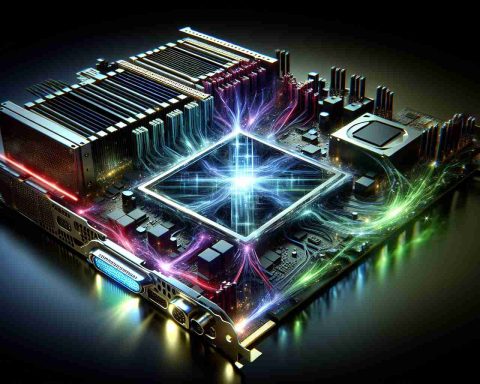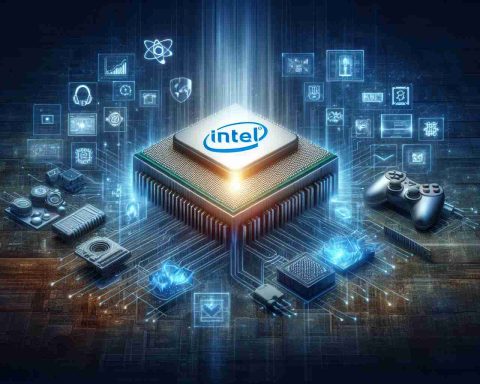The ongoing technology tussle between the United States and China has taken a significant turn. The Biden administration has initiated a probe into Chinese-made legacy semiconductors as part of its strategy to protect domestic industry interests. This move arrives shortly after major South Korean tech giants, Samsung Electronics and SK Hynix, secured substantial investment from the U.S. government.
A Focus on Legacy Chips
The U.S. Trade Representative has announced an inquiry under Article 301 of the Trade Act, scrutinizing general-purpose semiconductors manufactured in China. These essential components form the backbone of numerous industries, spanning from automotive to defense sectors. Authorities in the U.S. believe that Chinese semiconductor firms are undermining American economic stability by expanding production with extensive government support, leading to an influx of cheaper chips in global markets.
While the U.S. depicts this investigation as a measure to bolster supply chain resilience and safeguard national economic interests, China views it as another maneuver in the ongoing geopolitical contest. China’s Ministry of Commerce has criticized the investigation, labeling it as a contradiction given U.S. dominance in the global semiconductor market.
Potential Implications
Should the investigation conclude that China’s practices are discriminatory and disadvantageous to U.S. commerce, retaliatory measures such as tariffs or import restrictions could follow. However, any consequential policy decisions will likely fall to the incoming administration post-inauguration in January.
As tensions simmer, China has expressed a strong protest and hinted at its own retaliatory steps. Meanwhile, South Korean recipients of U.S. semiconductor subsidies, Samsung and SK Hynix, stand to gain significantly amid this turbulent backdrop.
Power Play in Semiconductors: U.S.-China Trade War Intensifies
In recent developments that are reshaping the global semiconductor landscape, the United States has intensified its trade dispute with China by launching an investigation into Chinese-made legacy semiconductors. This move is seen as part of a broader strategy by the Biden administration to protect domestic industries and reaffirm the strength of the U.S. technology sector. As the semiconductor industry becomes an arena for geopolitical tug-of-war, several new facets are emerging that could have lasting impacts.
Features and Innovations in U.S. Strategy
The U.S. is focusing its attention on legacy semiconductors, essential for sectors like automotive and defense. The underlying strategy is to ensure that technological advancements are protected and that the supply chain remains resilient against any disruptions. This initiative also highlights innovation as a form of strategic asset, further pushing the U.S. to invest in and develop cutting-edge semiconductor technologies.
Security Aspects and Economic Strategies
The inquiry under Article 301 of the Trade Act is reflective of growing concerns over economic stability and national security. By scrutinizing general-purpose semiconductors from China, the U.S. aims to curtail any vulnerabilities that could arise from dependence on foreign semiconductor manufacturing. Such moves not only safeguard economic interests but also gear up the domestic market to be more competitive and self-reliant.
Market Analysis: Winners and Losers
In the midst of this tech rivalry, certain players stand to benefit. Notably, South Korean giants Samsung Electronics and SK Hynix, who have received substantial U.S. investment, may emerge as major beneficiaries, potentially capturing market share that might be affected by any new tariffs or restrictions on Chinese products.
On the flip side, Chinese semiconductor firms might face hurdles if the investigation results in the imposition of severe penalties or import restrictions. This could lead to a reshuffle in global supply chains and further elevate tensions between the two economic superpowers.
Predictions: The Future of Semiconductor Trade
Should the inquiry find evidence of unfair practices by China, the U.S. might impose tariffs or set forth import restrictions in an attempt to correct the market imbalance. This potential outcome could prompt retaliatory actions from China, exacerbating the ongoing trade war and pushing nations to rethink their positions in the global semiconductor supply chain.
Geopolitical Controversies and Reactions
The ongoing tensions between these two major countries highlight the tightrope of diplomacy and economic power play. China’s Ministry of Commerce has criticized the U.S. investigation as contradictory, considering the U.S.’s dominant position in the industry. This controversy further emphasizes the geopolitical undertones that influence tech policies and economic strategies on the world stage.
Related Resource
For more in-depth analysis on trade and technology, visit United States Trade Representative and explore the intricacies of international trade agreements and policies.
The unfolding situation between the U.S. and China marks another chapter in the complex narrative of international trade relations, especially in the high-stakes realm of semiconductor technology. How this will evolve remains to be seen, but it will undoubtedly color the future of global technology and economic alliances.


















